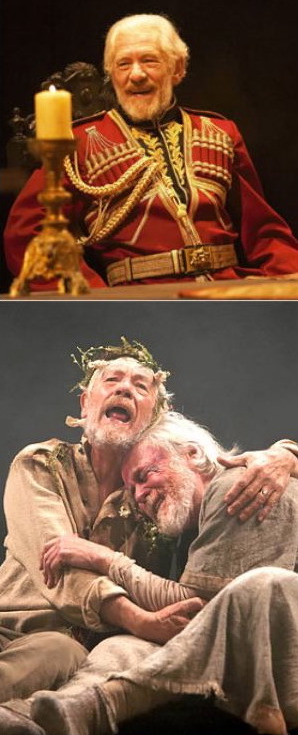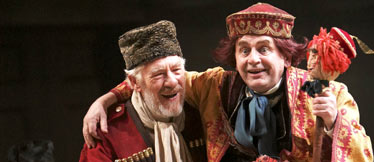A lot of civilians are being killed in this crazy little thing that Bush calls a war. The U.S. military is measuring out other people's lives with coffee spoons.
If an American soldier risks killing civilians, up to thirty deaths are acceptable, so long as the strike was against military targets. In the Iraqui war, which even its most ardent lovers admit cannot be "won" by military means, thirty civiian deaths would be counterproductive, if those thirty corpses leave one or two very angry survivors; certainly if my own loved ones were killed by a well-groomed aviator listening to headphones, I'd be dead or in Guantanamo before i'd stop hunting. Why do we expect better behavior from the
fellaheen than we do from outrselves?
Time was, with a sword in one hand and a pistol in the other, you could see the face of the poor bastard you shot, and be sure of your mark. War sure has gone downhill since Napoleon's brother added state terror to his conquest of Spain, and the outgunned Spanish responded with tactics that were given the name
guerilla, "little war". The French hussars thought a little shock and awe would cow the Spanish into submission, and of course it did-- only for so long as they kept the eye on weeping fathers and screaming women. The moment the big guy's back was turned, survivors started thinking up homespun ways to make a technologically superior force die very slowly, and very old.
This is a fundamental problem in the use of air force and massive strikes that has never been publically debated in a society that claims to have civilian control of its military. its origins lie in the biplane-era theories of an Italian aviator,
Giulio Douhet, who thought you could bomb an enemy into submission by destroying his infrastructure and taking civilian lives. They thought he was a crank during the First World War, even court-martialed and threw him in jail, but starting in the 1920s, when
The Command of the Air was published, he found an audience, with Guernica the first experiment.

The first part of Douhet's theory-- that you could destroy an enemy's war-making infrastructure from the air, and force him to surrender-- proved to be true as far as Germany was concerned. In Japan, the atomic bomb forced Japanese civilians to force the emperor to force the military to surrender-- but a close examination, as in the Pacific War Research Society's
Japan's Longest Day, proves, beyond the wishful thinking of my gentle pacifist brethren, that the Japanese military was
still not going to surrender
even after Nagasaki. It was our good luck and a civilian revolt against the samurai generals in charge that forced the emperor to concede. The second half of Douhet's premise has never been openly debated, except in our war colleges. It may be that American civilians, seeing their military adventures as fundamentally altruistic, cannot imagine there would be any organized revenge for an accidental killing.
The 14 Japanese researchers that make up the Pacific War Research Society must be lonely men, since so much of their work puts the lie to dearly held cliches on both sides of the Pacific. You might even find out that the
Japanese were working on their ownatomic bomb project at Hungnam, Korea, under Yoshio Nishina at the Imperial Japanese Army's Riken Institute.
In the case of Vietnam, the infrastructure was bombed "back to the Stone Age" many times over, with neutral Cambodia and Laos bombed for good measure, but it did not yield the results described by the Douhet: the Vietnamese simply hunkered down and toughened their resolve. The Luftwaffe could have told them that; Hitler's bombing of Britain did nothing to "weaken the resolve" of the civilian population, but only pissed everyone off and made Arthurian legends out of the teenagers who went up in Spitfires during the Battle of Britain, the firemen memorialized near St. James Cathedral, and Winston Churchill's sad guilty poking through the ashes of Canterbury.
And what is the emotional effect of modern American air power, for those unlucky enough to be standing under it? Are their first thoughts, "Gosh, we'd better surrender", or "Come close enough, you bastard, and I'll put a Stone-Age cap in your high-tech ass"? American audiences, who gasp at the atrocities inflicted on downed Americans in Somalia, apparently lack the imagination to see a Blackhawk helicopter from the Somali's point of view. Americans want always to be loved, and always perceive themselves as acting out of good will, like the Abominable Snowman hugging Bugs Bunny, and are always astonished, hurt, and then angry when they face rejection by the other.
If we are willing to as the Romans did, "make a desert and call it peace", then bombing and collateral damage will suffice; but there are no guarantees about what happens later, when the few survivors grow to manhood.

 (And some days it takes more Stones than others...) Where Mythical Bestiary meets Contemporary Culture and Chews On Its Leg Until Covered with Slobber.
(And some days it takes more Stones than others...) Where Mythical Bestiary meets Contemporary Culture and Chews On Its Leg Until Covered with Slobber.


